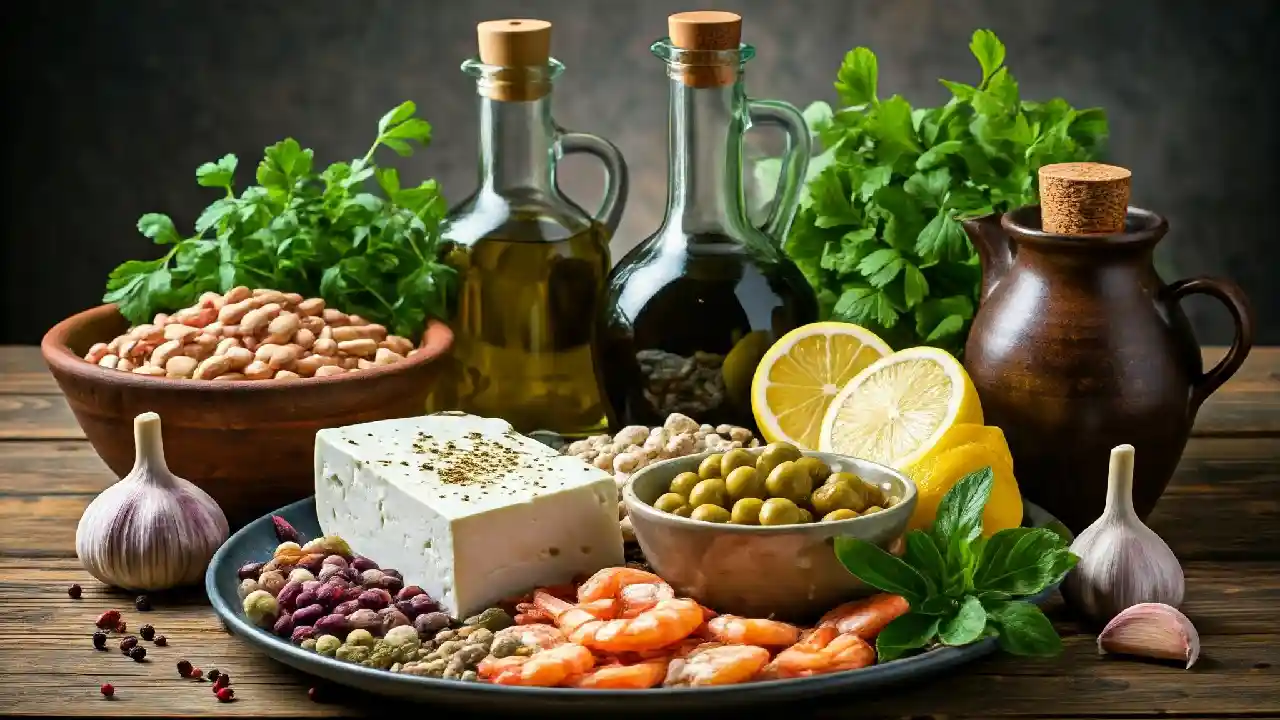The Complete 2025 Guide to Greek Cuisine: What to Eat and Where
Greek cuisine is a timeless treasure, blending the vibrancy of Mediterranean ingredients with centuries-old culinary traditions. From fresh seafood to hearty meat dishes, tangy cheeses to syrup-soaked pastries, it’s a sensory feast waiting to be discovered. In this complete guide to Greek cuisine for 2025, we’ll explore the must-try dishes, unique regional specialties, and the best places to indulge in authentic Greek flavors.
1. Introduction to Greek Cuisine
Greek cuisine is deeply rooted in history, culture, and community. It’s not just about eating; it’s about sharing, celebrating, and cherishing life’s simplest pleasures. Known for its reliance on fresh ingredients, olive oil, and herbs, Greek food emphasizes health and flavor. The Mediterranean diet, often heralded as one of the healthiest in the world, owes much to Greece’s culinary traditions.
2. Key Ingredients in Greek Cooking
Greek cooking revolves around a handful of essential ingredients:
- Olive Oil: The lifeblood of Greek cuisine, used in cooking and drizzling.
- Herbs and Spices: Oregano, thyme, dill, and mint add bold flavors.
- Feta Cheese: A tangy, crumbly cheese that’s a staple in many dishes.
- Lemons and Garlic: Used for marinades, sauces, and flavor enhancement.
- Seafood: Fresh fish, octopus, and calamari are abundant.
- Legumes: Lentils, chickpeas, and beans form the base of many vegetarian dishes.
3. Traditional Greek Dishes
Some of Greece’s most iconic dishes include:
- Moussaka: A baked dish with layers of eggplant, minced meat, and béchamel.
- Souvlaki: Skewered and grilled meat served with pita and tzatziki.
- Spanakopita: A savory spinach and feta pie wrapped in phyllo pastry.
- Greek Salad (Horiatiki): A refreshing mix of tomatoes, cucumbers, onions, olives, and feta.
- Dolmades: Vine leaves stuffed with rice and herbs, often served cold.
4. Regional Specialties Across Greece
Each region in Greece boasts unique culinary traditions:
- Crete: Known for its earthy dakos, rabbit stifado, and wild greens.
- Santorini: Famous for fava (split pea puree) and cherry tomatoes.
- Peloponnese: Home to syglino (smoked pork) and sweet pasteli (sesame honey bars).
- Thessaloniki: Renowned for bougatsa (semolina custard pie) and gyros.
5. Street Food to Savor
Greek street food is simple yet delicious:
- Gyros: Meat cooked on a vertical rotisserie and served in pita bread.
- Loukoumades: Fried dough balls drizzled with honey and cinnamon.
- Koulouri: Sesame-crusted bread rings, perfect for breakfast.
- Cheese Pies (Tiropitakia): Bite-sized pastries filled with cheese.
6. Iconic Greek Desserts
Save room for dessert! Greek sweets are irresistible:
- Baklava: Layers of phyllo pastry, nuts, and honey syrup.
- Galaktoboureko: A custard pie soaked in syrup.
- Kataifi: Shredded pastry with a nutty filling and honey drizzle.
- Halva: A semolina-based dessert often flavored with orange or cinnamon.
7. Vegetarian and Vegan Greek Options
Greek cuisine offers plenty of plant-based options:
- Gemista: Stuffed tomatoes and peppers with rice or quinoa.
- Fasolada: A hearty bean soup with tomatoes and olive oil.
- Revithada: Slow-cooked chickpeas, a dish from the island of Sifnos.
- Horta: Boiled greens served with olive oil and lemon.
8. Greek Drinks: Wines, Spirits, and More
Greece is also famous for its beverages:
- Ouzo: A strong, anise-flavored spirit.
- Retsina: A unique wine with a pine resin aroma.
- Mastiha: A liqueur made from mastic tree resin.
- Greek Coffee: Rich, unfiltered coffee served in small cups.
9. Seasonal Delicacies in 2025
Seasonal eating remains central to Greek food culture. In 2025, look out for fresh spring greens, summer fruits like watermelon and figs, and winter comfort foods such as avgolemono (lemon chicken soup).
10. Dining Etiquette in Greece
Greek dining is a communal affair. Always greet the host with a “Kalimera” (Good day) or “Efharisto” (Thank you). Sharing dishes, lingering over meals, and enjoying conversations are all part of the experience.
11. Where to Eat in Greece: Top Cities and Islands
Athens: Trendy tavernas and rooftop restaurants.
Crete: Rustic mountain villages with hearty fare.
Mykonos: Upscale dining with a view of the Aegean.
Corfu: Venetian-inspired seafood dishes.
12. Exploring Athens’ Food Scene
Athens combines traditional and modern dining:
- Plaka: Traditional tavernas under the Acropolis.
- Monastiraki: Bustling markets with street food.
- Psiri: Hip neighborhoods with fusion cuisine.
13. Hidden Gems: Lesser-Known Food Destinations
For a unique experience, visit:
- Naxos: For its creamy cheeses.
- Karpathos: Known for makarounes pasta.
- Kastoria: A haven for freshwater fish dishes.
14. Cooking Greek Food at Home
Recreate Greek flavors with simple recipes:
- Learn to make homemade tzatziki.(Youtube Video)
- Try your hand at spanakopita.
- Master the art of grilling souvlaki.
15. Frequently Asked Questions
Q1: What’s the most popular Greek dish?
A: Moussaka and souvlaki are among the most iconic dishes in Greece.
Q2: Is Greek food healthy?
A: Yes! Greek cuisine emphasizes fresh ingredients and healthy fats.
Q3: Are there vegan options in Greek cuisine?
A: Absolutely! Many dishes like fasolada and gemista are vegan.
Q4: Where can I find authentic Greek food in Athens?
A: Visit Plaka or Monastiraki for traditional meals.
Q5: What’s the best time to visit Greece for food?
A: Spring and summer offer fresh produce, while winter showcases hearty dishes.
Q6: What are some must-try Greek desserts?
A: Baklava, galaktoboureko, and loukoumades are unmissable!








